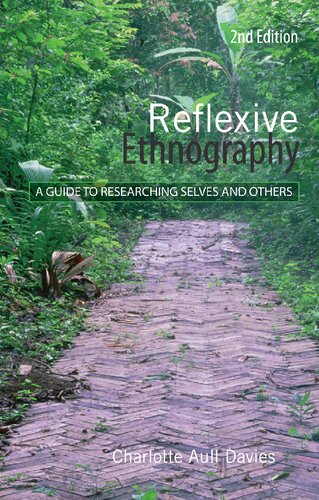

Most ebook files are in PDF format, so you can easily read them using various software such as Foxit Reader or directly on the Google Chrome browser.
Some ebook files are released by publishers in other formats such as .awz, .mobi, .epub, .fb2, etc. You may need to install specific software to read these formats on mobile/PC, such as Calibre.
Please read the tutorial at this link: https://ebookbell.com/faq
We offer FREE conversion to the popular formats you request; however, this may take some time. Therefore, right after payment, please email us, and we will try to provide the service as quickly as possible.
For some exceptional file formats or broken links (if any), please refrain from opening any disputes. Instead, email us first, and we will try to assist within a maximum of 6 hours.
EbookBell Team

4.8
14 reviewsReflexive Ethnography is a unique guide to ethnographic research for students of anthropology and related disciplines. It provides practical and comprehensive guidance to ethnographic research methods, but also encourages students to develop a critical understanding of the philosophical basis of ethnographic authority.
Davies examines why reflexivity, at both personal and broader cultural levels, should be integrated into ethnographic research and discusses how this can be accomplished for a variety of research methods. This revised and updated second edition includes:
Postmodernist relativism can lead to an over-emphasis on reflexivity that denies the possibility of social research. Reflexive Ethnography utilises postmodernist insights – incorporation of different standpoints, exposure of the intellectual tyranny of meta-narratives – but proposes that reflexive ethnographic research be undertaken from a realist perspective. Reflexive Ethnography will help students to use and understand ethnographic research practices that fully incorporate reflexivity without abandoning claims to develop valid knowledge of social reality.